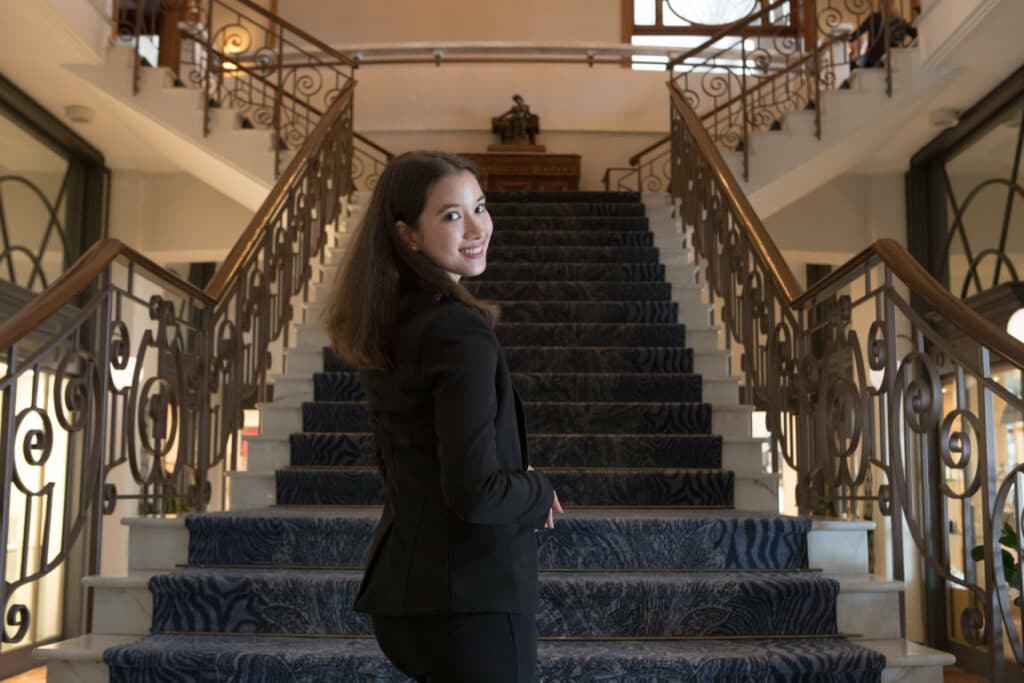For the recovery of the hospitality and tourism sector it is essential to offer an impeccable guest service. The analysis and suggestions of Dr. Barbara Czyzewska, Interim Academic Dean & Head of Luxury Brand Strategy Specialization at Glion Institute of Higher Education
In the near future, hotel guests will likely have different needs that are increasingly fluid and less obvious. And the guest service will have to adapt.
According to Dr Barbara Czyzewska, Interim Academic Dean & Head of Luxury Brand Strategy Specialization at Glion Institute of Higher Education, excellent guest service can be identified as a kind of attention to detail that makes a difference.
The other side of the crisis
Dr. Czyzewska is convinced that communication is essential to manage the current crisis in the sector. Also, she invites us to look at the flip side. In fact, every crisis leads to a development of entrepreneurship.
And that is precisely what is happening in these very difficult times. In fact, the sector has demonstrated this with an efficient response on all levels.
In addition to innovation and investments in sustainable projects, effective management of the “new normal” in the field of “guest experience” has also been possible thanks to training initiatives designed to help institutions prepare for the future.
In this context it is likely that hospitality schools will also have to change their curricula. And therefore pay greater attention to crisis management and the management of contingencies.
The initiatives of the hotels
Now that travel is gradually starting again, hotels are devising new formulas suitable for longer stays. For example, some countries like Dubai are offering special visas to those who want to relocate and work in smartworking for a year. Several hotel chains offer special offers for long stays. Both for customers who work remotely and for those who have to spend the days of quarantine. There are even hotels that offer packages for younger guests to support them as they do distance learning.
The importance of experience
If in the past the focus was mainly on the location, now we focus more on the concept of experience. The vast majority of visitors need to be pampered. This reality favors the significant “staycation” trend. The choice of staying in your home country (and often even in the cities), and enjoying a romantic or relaxing weekend at a hotel.
Some even stay at the hotel simply to be able to use the spa or restaurant, services otherwise unavailable due to restrictions. This is proving to be a game changer for hotels that previously tended not to cater to a local clientele.
The new musts
Dr Czyzewska stresses that the services offered by the facilities must be commensurate with these needs. In addition to understanding how to increase security measures without making guests feel uncomfortable, elements such as fast internet connectivity, rooms suitable for having virtual conversations or meetings in complete privacy, special recording equipment, screens, microphones and all technical support to ensure continued efficiency, they are a must.
As well as more leisure experiences, such as enhanced spa treatments or other services that can be provided in rooms and suites to avoid guests having to expose themselves to external risk factors. In addition to this, services for the little ones are also essential, including daycare or school tutoring activities.
About Glion Institute of Higher Education
Founded in 1962, it is a private Swiss institution offering undergraduate and master’s degree programs in hospitality, luxury and event management. Glion also offers a postgraduate MBA program combined with an MSc in International Hospitality Business in partnership with Grenoble Ecole de Management. Part of Sommet Education, Glion is university accredited by the New England Commission of Higher Education (NECHE), and is ranked third among the world’s best universities in hospitality and leisure management (QS World University Rankings by Subject 2020).
Info
www.glion.edu







No comment yet, add your voice below!